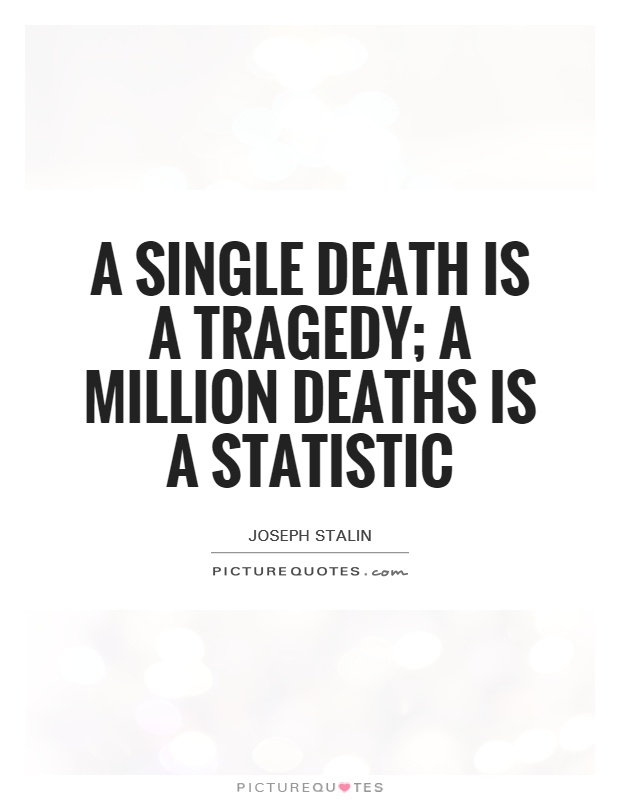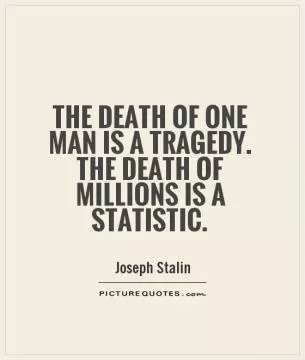A single death is a tragedy; a million deaths is a statistic

A single death is a tragedy; a million deaths is a statistic
Joseph Stalin, the infamous Soviet dictator, is often associated with the quote, "A single death is a tragedy; a million deaths is a statistic." This quote perfectly encapsulates Stalin's brutal reign of terror, during which millions of people perished under his ruthless rule.Stalin's regime was marked by widespread purges, forced labor camps, and mass executions. He was responsible for the deaths of millions of his own citizens, including political opponents, intellectuals, and ordinary people who were deemed a threat to his power. The sheer scale of the atrocities committed under Stalin's rule is staggering, and it is easy to become numb to the statistics of death and suffering that resulted from his policies.
Stalin's quote reflects his callous disregard for human life and his willingness to sacrifice individuals for the greater good of the state. To him, the death of a single person was insignificant in the grand scheme of things, but the deaths of millions could be justified in the pursuit of his vision of a socialist utopia. This mindset allowed Stalin to commit horrific acts of violence and oppression without remorse or hesitation.
The quote also highlights the dehumanizing effect of totalitarian regimes like Stalin's. By reducing individual lives to mere statistics, dictators like Stalin are able to justify their actions and distance themselves from the human cost of their policies. This devaluation of human life is a hallmark of authoritarianism, and it allows tyrants to commit unspeakable acts of cruelty without facing the full moral weight of their actions.












 Friendship Quotes
Friendship Quotes Love Quotes
Love Quotes Life Quotes
Life Quotes Funny Quotes
Funny Quotes Motivational Quotes
Motivational Quotes Inspirational Quotes
Inspirational Quotes